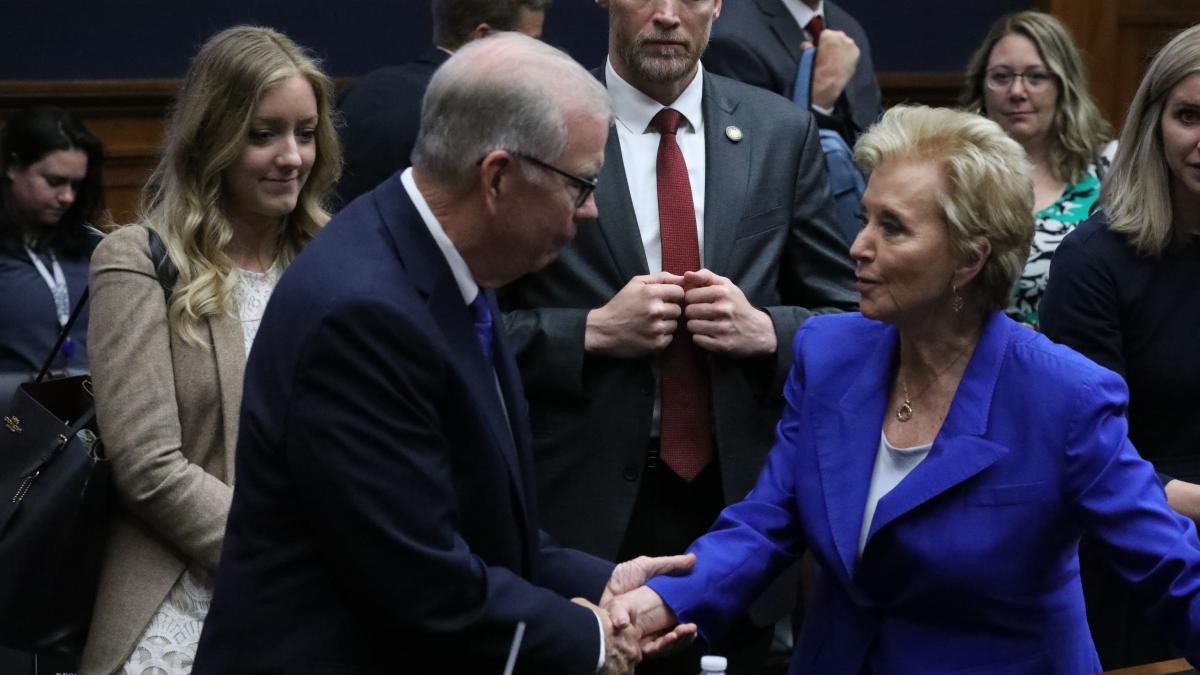Fighting the Opioid CrisisThe CDC has reported that opioid overdose deaths have declined from an estimated 83,140 in 2023 to 54,743 in 2024. To continue on this trajectory, this week the House passed the SUPPORT for Patients and Communities Reauthorization Act of 2025. This bill would build on the efforts of the original SUPPORT for Patients and Communities Act of 2018 by reauthorizing and expanding programs focused on preventing and countering substance use disorders. This includes reauthorizing several bipartisan provisions I authored with my colleague, Rep. Debbie Dingell (D-MI). Please know I will continue to address the opioid epidemic that is sweeping our nation.
|
Hearing from Secretary of Labor Chavez-DeRemerOn Thursday, Secretary of Labor Lori Chavez-DeRemer appeared before the Education and Workforce Committee to discuss her efforts to address the skills gap and get our economy and workforce back on track. The Trump administration is working to advance economic policies that unleash the ingenuity and entrepreneurial spirit of the American workforce, and as a result, more jobs have been added to our economy every month since he took office. As Chairman of the Education and Workforce Committee, I remain committed to working with Secretary Chavez-DeRemer to continue to eliminate excessive regulations and create job growth.
|
Empowering Small BusinessesThis week, House Republicans passed multiple bills to codify President Trump's executive orders to ensure that small businesses can continue to thrive. The American Entrepreneurs First Act would require proof of citizenship for U.S. Small Business Administration (SBA) assistance programs to put Americans first. Furthermore, the SAVE SBA from Sanctuary Cities Act would hold sanctuary cities accountable for refusing to abide by federal law and putting American lives at risk by relocating SBA offices out of sanctuary jurisdictions. The Capping Excessive Awarding of SBLC Entrants would reverse a harmful Biden-era regulation to ensure that SBA programs are sustained for future entrepreneurs.
|
Correcting the Record on the One Big, Beautiful Bill Recently, my office has received inquiries regarding the One Big Beautiful Bill Act, which was passed by the House. Below are some frequently asked questions on the bill. Question:Does the bill cut Medicaid for mothers, children, seniors, and people with disabilities? - Answer: This bill strengthens and secures Medicaid for those who need it most. There are no cuts to Medicaid for mothers, children, people with disabilities, or elderly Americans. Instead, it ensures illegal immigrants, able-bodied adults choosing not to work, and people who aren’t actually qualified for Medicaid aren’t draining the already-burdened system.
Question: What does this bill do to help the middle class and hardworking Americans? - Answer: The Trump tax cuts delivers the biggest relief to working class Americans in a generation. Without extending these vital provisions, the average taxpayer in MI-05 would see a 27% tax hike.
Question: Does this bill add to the deficit? - Answer: This bill saves $1.6 trillion in mandatory spending, a once-in-a-generation opportunity to reduce the deficit. There have been claims that the bill would increase the deficit based on gimmicks and faulty assumptions. However, these projections not only presume the largest tax hike on hardworking Americans in history, but also fail to take into account the bill's contributions to economic growth. These same faulty premises have led to massively inaccurate estimates in the past. Back in 2017, CBO estimated that the Tax Cuts and Jobs Act would decrease revenue by $1.5 trillion, but actual revenue through 2024 came in $1.5 trillion higher than projected.
Question: Shouldn't this bill do more to cut spending and codify DOGE's cuts? - Answer: Because the One Big Beautiful Bill Act is a reconciliation bill, it can only be used to make changes to certain mandatory spending programs. It is not an appropriations bill that can decrease discretionary funding. To codify DOGE's cuts, the White House has sent over a separate rescissions package which would cancel funding that has already been appropriated by Congress. We can also repeal wasteful discretionary funding through the appropriations process, which is distinct from the reconciliation process.
|
|
|
|
